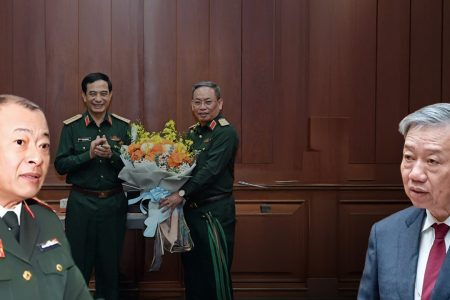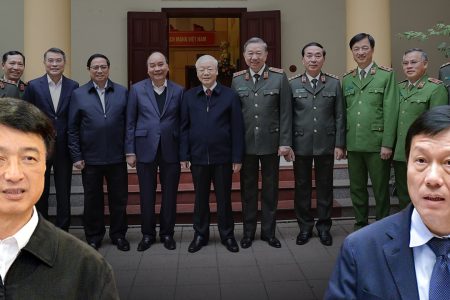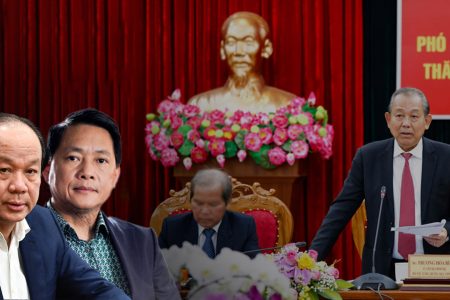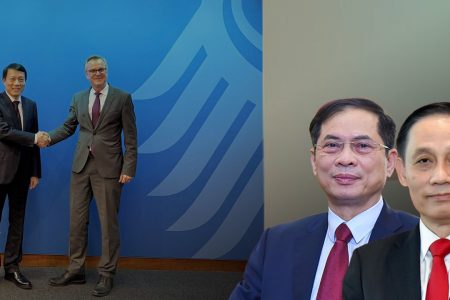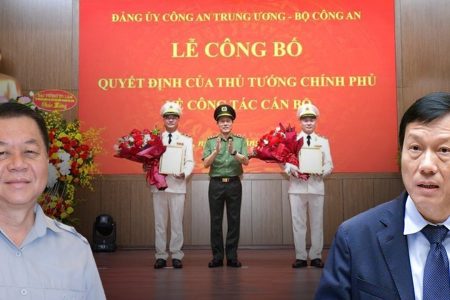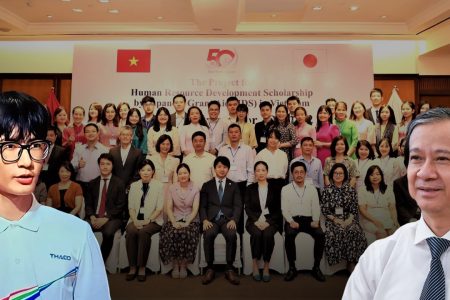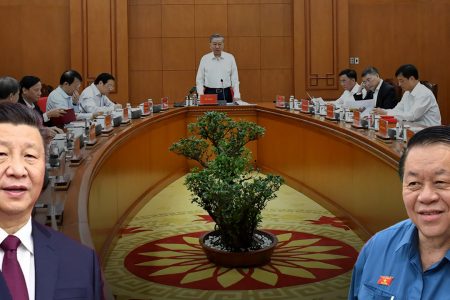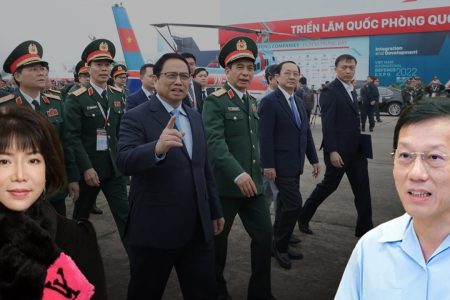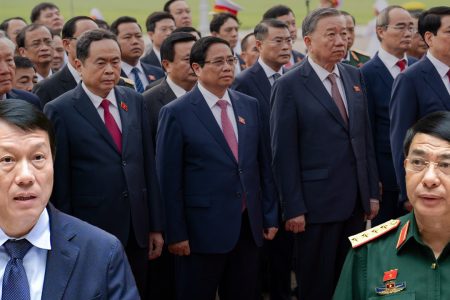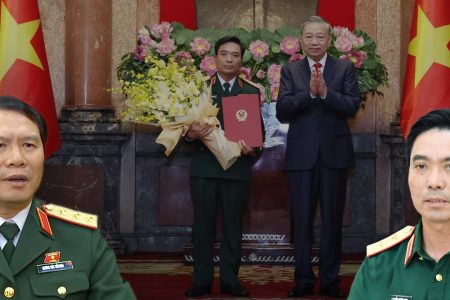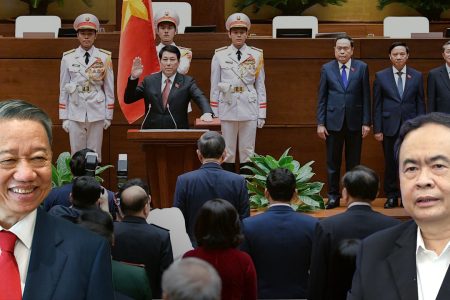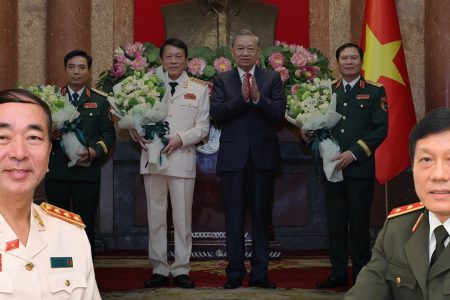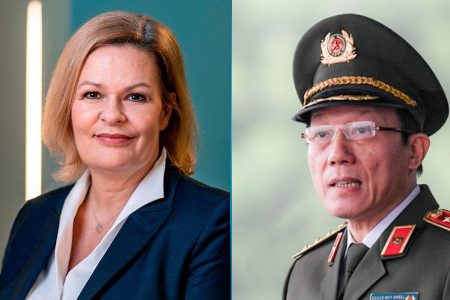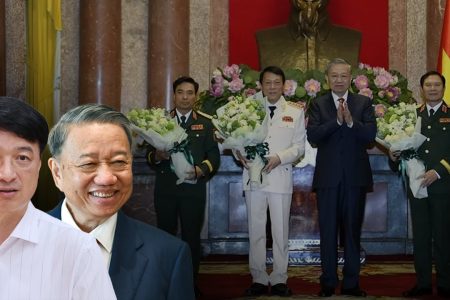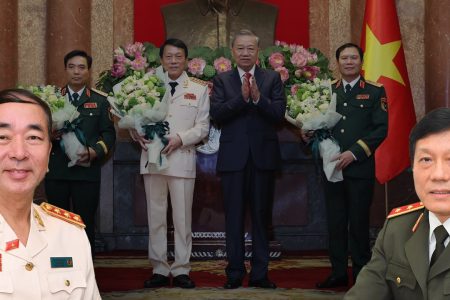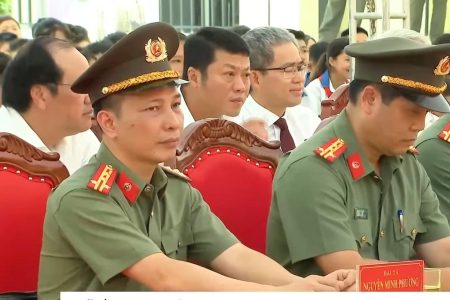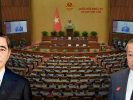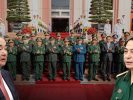
Southerners after 1975, when talking about the country’s tragic situation at that time, had a saying: “If a lamppost could walk, it would have left the country.”
In 2020, then Prime Minister Nguyen Xuan Phuc, on the occasion of the 35th anniversary of the country’s unification, when excited, also used a similar saying, that is: “If the electric pole in the US had legs, it would run to Vietnam.”
Nguoi Lao Dong newspaper reported on March 4, “Dismissal of female official of the People’s Court of Quang Binh because she went to the US to travel and did not return.” The news said that a female official of the People’s Court of Quang Binh province asked for annual leave to go to the US but at the end of the term she still did not return to work.
Accordingly, PTMN, an official of the Department of Personnel Organization, Inspection and Emulation and Commendation, applied to the Quang Binh provincial Court, asking for leave to go to the US to visit her relatives. However, after that, she did not return to Vietnam, but stayed in the US for a long time.
After reviewing and comparing the regulations, the Quang Binh provincial Court reported the matter to the Supreme Court, and at the same time decided for PTMN to “cancel her work contract according to personal wishes” in accordance with its authority.
Public opinion believes that it is not uncommon for cadres, civil servants, and public employees in Vietnam to be sent to work or study abroad and then find a way to stay.
On February 28, 2023, the Hanoi People’s Court sentenced four people to prison in the case of organizing others to flee abroad, according to the Working Group of the Ministry of Agriculture and Rural Development.
Or the case of Tran Ngoc Phi Long, Deputy Head of the International Cooperation Department of the Can Tho Department of Foreign Affairs, who was sent on a business trip to the US in 2014 and also did not return.
In 2018, there was a high-profile incident involving a Vietnamese National Assembly delegation visiting and working in Korea, led by then National Assembly Chairwoman Nguyen Thi Kim Ngan. At that time, Korean MBC Television announced that 9 out of 160 people accompanying this group did not return to Vietnam after the visit.
It is known that the Vietnamese National Assembly delegation visited Korea at the invitation of Korean National Assembly Chairman Moon Hee-sang. In addition to Chairwoman Nguyen Thi Kim Ngan, there are also 20 high-ranking officials, including ministers and members of the National Assembly Standing Committee.
According to MK News, the Korean government did not know anything about the escape of 9 members of this delegation, until one of them appeared at the airport, asking to return to Vietnam.
BBC Korean on September 24, 2019 said that the Korean Ministry of Foreign Affairs confirmed that, during the visit of the Vietnamese National Assembly delegation, there were 9 illegal immigrants, 2 of whom have returned. country, 7 people are still living illegally in Korea to this day.
According to information from the Ministry of Public Security of Vietnam, there are many criminals fleeing abroad to avoid being prosecuted. Notably, particularly serious criminals have tried to flee to countries in Europe to avoid the death penalty.
Among the cases of escape from arrest abroad, receiving public attention, is the case of Nguyen Thi Thanh Nhan – former Chairwoman of the Board of Directors of AIC Advanced Joint Stock Company and her accomplices.
Previously, in 2017, the Vietnamese Security Agency was accused by Germany that they sent people to Berlin to kidnap former Vietnamese government official Trinh Xuan Thanh and bring him back to the country, even though Thanh was applying for political asylum in Germany.
Vietnamese people have a saying “good land, birds can perch on.” Choosing a land to live in, or choosing a country to settle in, is the right of each individual on the basis of the provisions of law.
Teacher Thai Hao from Hue, commenting on the case of a female official of the Quang Binh Court who traveled to America and then ran away, commented that:
“This Court official is just a small example of the underground wave of migration of officials and their families to capitalist countries, from studying abroad, buying houses, settling down, etc. that the press reported. The state-controlled media and the National Assembly forum have stated it publicly for many years.”
“I don’t blame them, because people have the right to find a good place to live. There’s only one thing that makes me disagree, which is that they’re not sincere. They say one thing but do another.”
Public opinion finds that most cadres, civil servants, and public employees in Vietnam are members of the Communist Party. They are sent to work or study abroad, then try to stay there without caring about the issue of national honor, which is extremely alarming./.
Tra My – Thoibao.de



